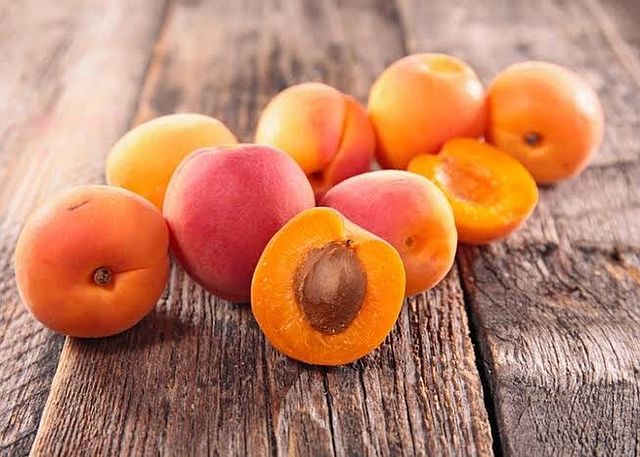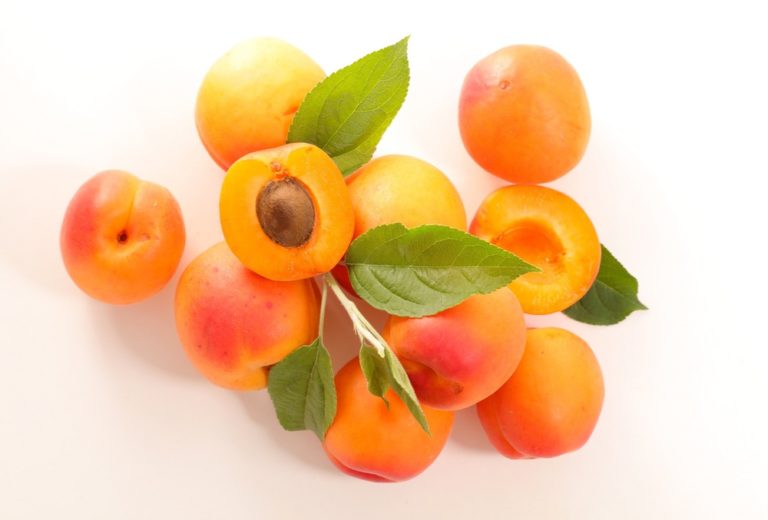It continues to be wide debates about whether or not dogs should be fed with fruits, and one fruit that typically constitutes the bone of contention in most discussions is the juicy apricot.
So, can dogs eat apricots? Yes, dogs can eat moderate amounts of apricots, and the high nutritional content of this fruit makes it a great choice to feed pooches with. However, parts of the apricot fruit such as the seed, stem, pit, and leaves can be toxic to a dog and should be removed when feeding a pooch with apricots.
Succulent and with a refreshing taste, it is no wonder why dogs, as well as humans, love apricots, and even better, the rich nutritional content of this fruit makes it a great choice to feed your canine buddy with.
However, as wonderful as apricots can be for dogs, healthwise, this fruit can also pose a health risk to your canine buddy, and this article outlines some of these risks. However, before we go further, let’s examine why dogs can eat apricots, as well as how much apricot a pooch can eat without falling sick.
Can Dogs Eat Apricots?

Yes, dogs can eat apricots in moderation. But when feeding your canine buddy with apricots, you must ensure that the pooch doesn’t eat the fruit’s seed or stem, as this can be dangerous for the dog.
Apricots, known scientifically as Prunus armeniaca, are round, yellow, and fleshy stone fruits that typically look like smaller versions of peaches.
The fleshy fruits of apricots are perfectly safe for dogs to munch on, and even better, regularly feeding your canine buddy with apricots comes attached with several health benefits.
Apricots can be fed directly to dogs as treats, and they can also be used in several homemade treat recipes, such as in ice creams and biscuits, for pooches.
Frozen apricots can also be fed to dogs like popsicles in the hot summer months, and you can equally puree or add apricot into your dear Fido’s regular meals.
Can Dogs Eat Dried Apricots?
Just like with fresh apricot fruits, dogs can safely consume dried apricots without side effects. The process of preparing dried apricots typically involves the removal of the fruit’s water content, either by sun-drying, making use of a microwave, oven, or dehydrator.
It is also important to note that the process of drying has little to no impact on the nutritional value of apricots, and dried apricots are equally as nutritional as fresh apricot fruits.
Dried apricots are usually de-stoned while processing; hence they are generally safe to feed to dogs straight from the packet. This, however, is no excuse to throw caution to the wind, though, and before feeding your pooch with dried apricots, it is recommended that you split the fruit to verify that the seed has been truly removed.
Additionally, dogs need to be fed dried apricots in smaller amounts, compared to fresh apricots, and this is because the nutrients in dried apricots are much more concentrated; Hence, your canine buddy will get more nutrients from a smaller amount of dried apricots, compared to the fresh ones.
Also, some dried apricot products are prepared with sugar; Hence, before feeding your canine buddy with dried apricots purchased from a store, check the product label to be sure that the dried apricots don’t contain ingredients and additives that can be harmful to your doggy’s health.
How Many Apricots Can A Dog Eat?
There is no strict guideline when it comes to feeding dogs with apricots, and the number of apricots – dried or fresh – that a dog can eat on a daily basis is dependent on the pooch’s size.
Generally, smaller dogs should eat no more than half an apricot per day, while the large-sized pooches can comfortably eat a whole apricot in a day without issues.
However, to avoid ambiguity, it is recommended that you stick to the 10% rule when feeding your canine buddy with apricots. And what this means is that apricots shouldn’t constitute more than 10% of your pooch’s total daily caloric intake, with the remaining 90% coming from balanced dog meals.
What Are The Benefits Of Feeding My Dog With Apricots?

Apricots contain a ton of nutrients that can have a great positive effect on a pooch’s well-being when consumed in moderate amounts and without the harmful components of the fruit, such as the seed.
Highly Nutritional
Apricots are a great source of many essential vitamins and minerals, which work in tandem with a dog’s body system to ensure that the fido remains in good health.
Vitamin A contained in apricots is important in maintaining a dog’s eyesight, as well as for the maintenance of nearly every organ system within a pooch’s body. Vitamin A also helps maintain a pooch’s skin and coat quality and also helps power the canine immune system.
Apricots also contain vitamin C, which is an important antioxidant that helps get rid of potentially harmful free radicals within a dog’s body, reduce inflammation and lessen the effects of cognitive aging in dogs.
Vitamin E, which is equally abundant in apricots, helps protect a dog’s defenses from oxidative damage and is crucial for proper cell function and the breakdown of fat in a dog’s body.
Apricots are also rich in soluble fiber and potassium, both of which may help reduce blood cholesterol levels and blood pressure. Fiber is also highly beneficial to a dog’s digestive system, and it aids with the easy digestion of consumed food.
Apricots Contain A Lot Of Antioxidants
Apart from the antioxidant features carried out by some of the features listed above, it is also worth noting that apricots are rich in beta-carotene, which can be best described as a specialized antioxidant.
Antioxidants are crucial for dogs because they serve as the first line of defense for pooches by helping to find out free radicals that cause damage to body cells and oxidative stress and subsequently helping to neutralize these harmful compounds.
Additionally, beta-carotene can also be converted into vitamin A within a dog’s body, thereby helping to make up for a deficiency of this essential vitamin.
Are Apricots Dangerous For Dogs?
Apricot seeds contain cyanide which poses a poisoning hazard for dogs. Additionally, the consumption of excessive amounts of apricots can result in stomach issues for a dog.
We’ve stated earlier that Apricots are safe for dogs to eat, but there are instances where this exotic fruit can pose a safety threat to your canine buddy.
Cyanide Poisoning
The fleshy, fruity portion of apricots is safe for dogs to eat, but the seed, stem, leaves, and pit of this fruit contains traces of cyanide which can be toxic to dogs when ingested. Consequently, the aforementioned parts of the apricot should be avoided at all costs when feeding your canine buddy with this fruit.
Cyanide present in the seeds, stems, leaves, and pits of apricots is dangerous to a dog because it inhibits the proper functioning of the enzyme responsible for transporting oxygen around the pooch’s body, thereby causing the dog to become severely ill and resulting in death in some cases.
Signs of cyanide poisoning in dogs, which typically occur due to a pooch feeding on the toxic parts of apricot fruits, include panting, tail tucking, weakness, dropped ears and dilated pupils. Additional symptoms include reddening of the gums, lethargy, and fainting.
Symptoms of cyanide poisoning in dogs usually show up as early as 15 minutes after a pooch has consumed the toxic parts of an apricot, and quick medical attention should be provided to ensure such a pooch’s safety.

Choking And Intestinal Blockage
Apart from the possibility of cyanide poisoning, small dog breeds can choke on apricot seeds and pits when swallowed, and the seed can equally cause an intestinal blockage within the pooch.
Common signs that indicate that a fido is suffering from an intestinal blockage include vomiting, constipation, and a loss of appetite. And emergency medical attention is typically required to ensure that this situation doesn’t degenerate into something complicated for the pooch in question.
Stomach Upset
Apricots, and fruits in general, contain a considerable amount of sugar and fibers; hence overfeeding your canine buddy with this fruit can result in a gastrointestinal upset, which typically manifests as canine diarrhea.





